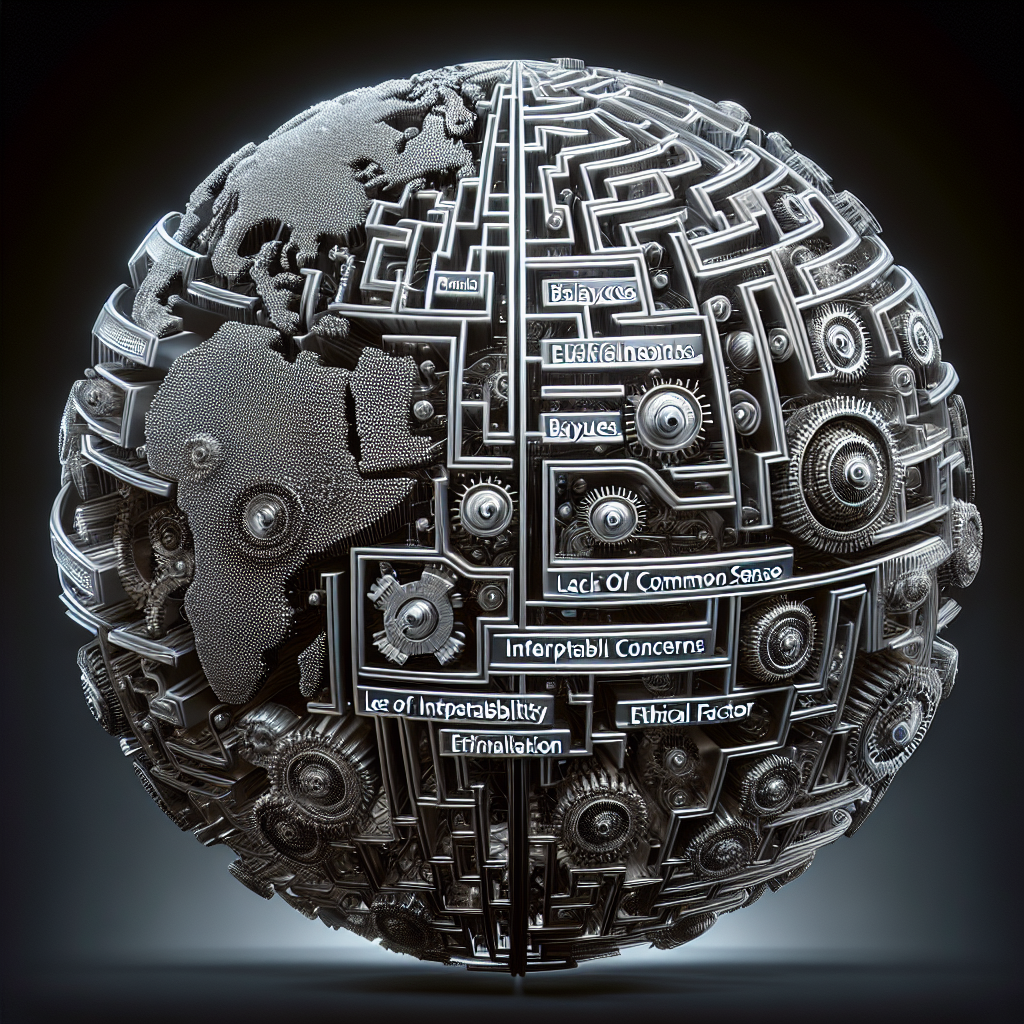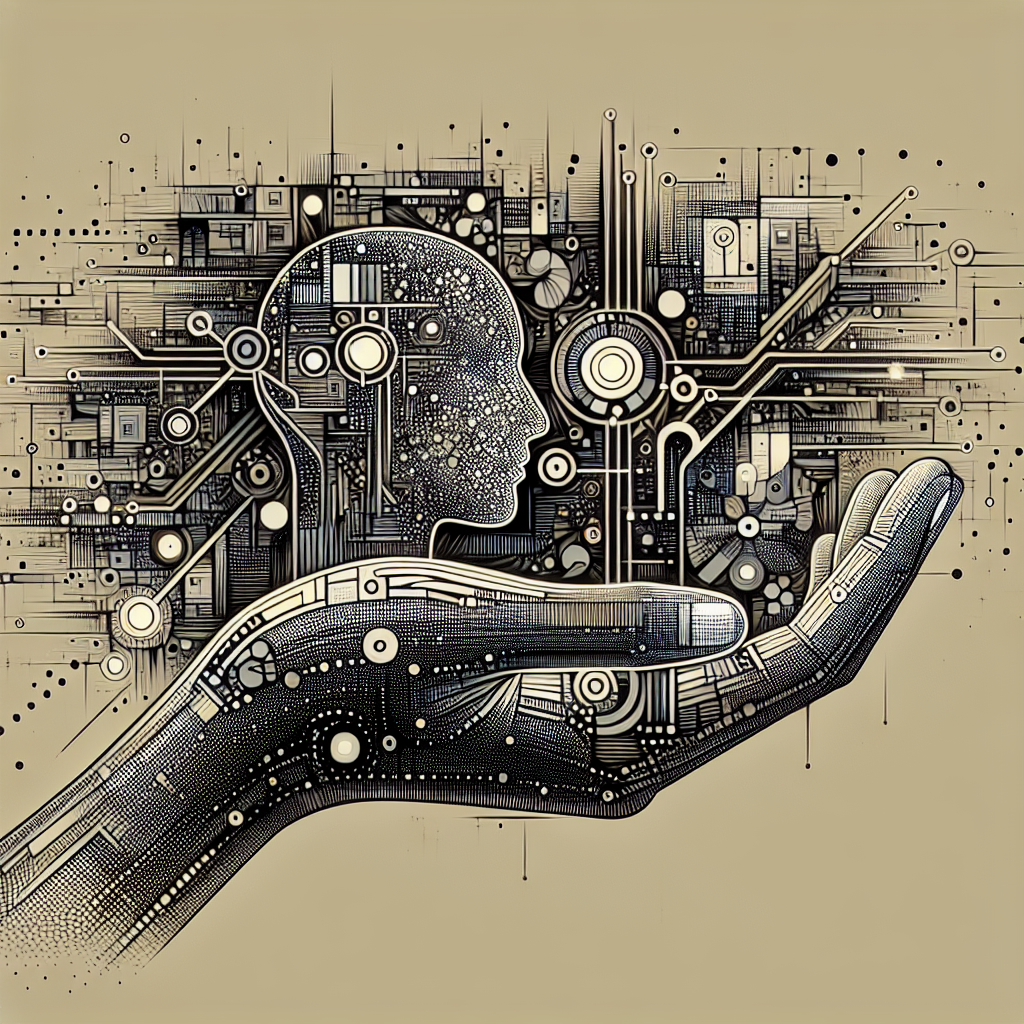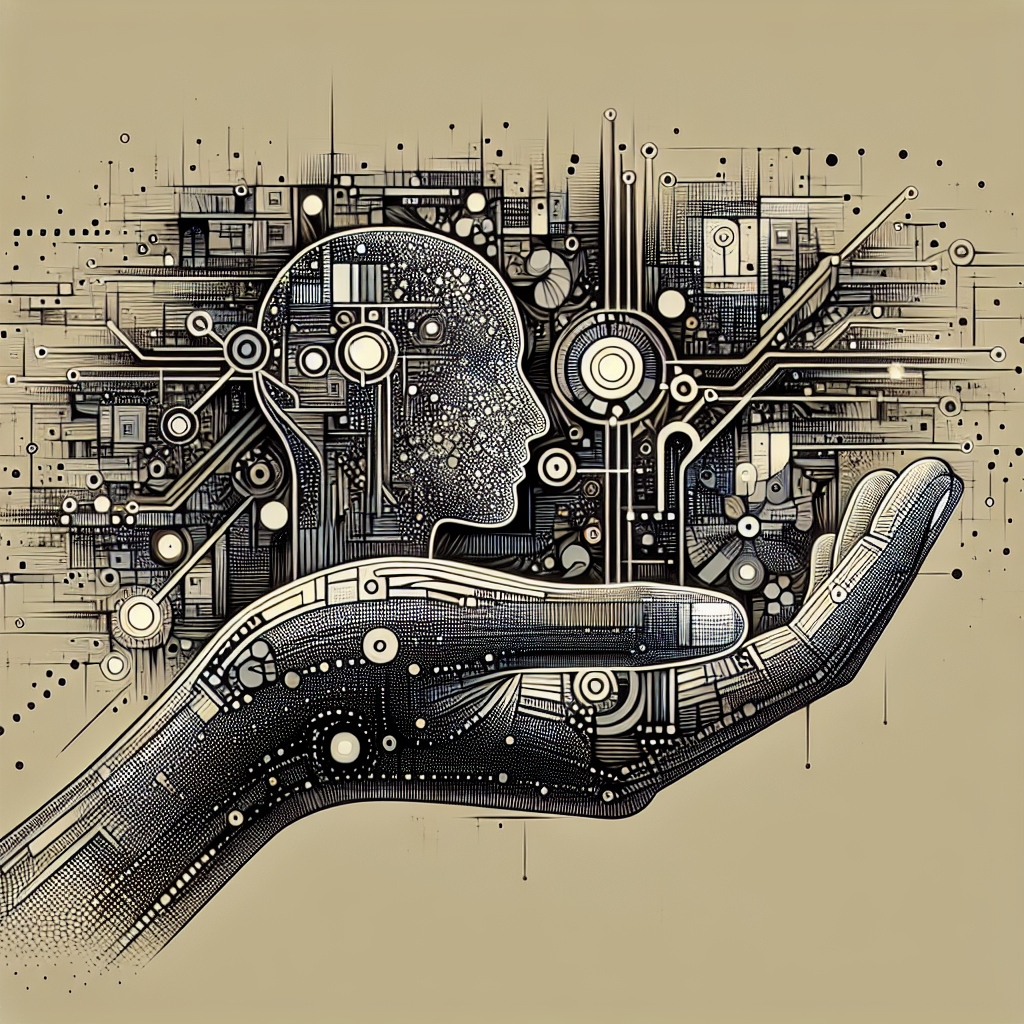AI, or Artificial Intelligence, has become an integral part of our lives, revolutionizing the way we interact with technology. From virtual assistants to self-driving cars, AI has undoubtedly made our lives easier. However, as remarkable as AI may be, it is not without its limitations. In this article, we will explore the constraints that AI faces and delve into the challenges that arise when it comes to replicating human-level intelligence. So, fasten your seatbelts as we embark on a journey to uncover the fascinating world of AI’s limitations and discover how far we have come in bridging the gap between artificial and human intelligence.
Processing Power Limitations
Processing Speed
One limitation of AI is its processing speed. While AI systems have the ability to perform complex computations, they often require a significant amount of time to complete tasks. This can be problematic in real-time applications where quick decisions or responses are required. The processing speed of AI systems can be further constrained by a variety of factors including the complexity of the task, the available computational resources, and the efficiency of the algorithms used.
Computational Capacity
Another limitation of AI is its computational capacity. AI systems rely heavily on computational power to perform their tasks effectively. However, there are limitations to the amount of computational resources that can be allocated to AI systems. This can result in slower processing times or the inability to handle larger datasets or complex computations. Additionally, as AI models become more sophisticated and require more computational power, the limitations of existing hardware can become even more apparent.
Data Limitations
Quality and Quantity
The quality and quantity of data available to AI systems play a critical role in their performance. However, AI systems are limited by the availability and accessibility of high-quality and diverse datasets. If the available data is of poor quality or lacks diversity, it can lead to biased or inaccurate predictions and decisions. Furthermore, the quantity of data can also be a limitation. AI systems often require massive amounts of data for training, and if such data is scarce or limited in availability, it can hinder the performance and generalization capabilities of the AI system.
Bias and Unrepresentative Data
AI systems are also limited by the potential bias present in the data used for training. If the training data is biased or unrepresentative of the real-world population, the AI system may generate biased outputs or perpetuate existing biases. This can have negative implications in various domains, such as hiring practices, criminal justice systems, or healthcare. Therefore, it is crucial to address bias in training data and ensure that AI systems are trained on diverse and representative datasets to minimize bias limitations.

Domain Expertise Limitations
Lack of Contextual Understanding
AI systems often lack contextual understanding, which can limit their ability to accurately interpret and respond to complex situations. While AI can excel in narrow domains where rules are well-defined, they struggle with understanding nuanced contexts. For example, an AI system trained to diagnose medical conditions may struggle to accurately diagnose a patient in a complex case with multiple symptoms and comorbidities. The lack of contextual understanding can lead to incorrect or incomplete conclusions, posing risks and limitations in critical domains.
Absence of Common Sense Knowledge
Another limitation of AI is its absence of common sense knowledge. While AI systems can be trained to recognize patterns and make predictions based on historical data, they may struggle with common sense reasoning and understanding basic human knowledge. This limitation can lead to AI systems making nonsensical or illogical decisions in situations where humans would easily apply common sense. For example, an AI-powered driverless car may lack the ability to handle unexpected traffic situations because it lacks the common sense knowledge that human drivers possess.
Ethical Limitations
Privacy and Security Concerns
The ethical limitations of AI include concerns related to privacy and security. AI systems often require access to large amounts of personal or sensitive data to learn and make accurate predictions. However, this can raise privacy concerns as individuals may be uncomfortable with their data being collected and used without their consent. Furthermore, the security of AI systems themselves can be a limitation, as they can be vulnerable to attacks or breaches that can compromise sensitive information or result in malicious use of AI capabilities.
Lack of Morality or Emotional Intelligence
AI systems lack morality and emotional intelligence, which can be a significant limitation in certain applications. Ethical decision-making often requires a deep understanding of moral and emotional considerations, which AI currently lacks. For example, an AI system used in healthcare may not be able to consider the emotional impact of delivering difficult diagnoses or make morally weighted decisions such as triaging patients during a shortage of resources. This limitation highlights the need for human oversight and intervention to ensure ethical considerations are appropriately addressed.

Uncertain Decision-Making
Lack of Explainability
One limitation of AI is its lack of explainability in decision-making. Deep learning models, for example, can be complex black-box models that provide accurate predictions but lack transparency in explaining how they arrived at those predictions. This lack of explainability can be a challenge in applications where decisions need to be justified or understood by humans. The inability to explain the rationale behind AI decisions can lead to mistrust, legal challenges, and reliance on human intervention for critical decision-making.
Dependence on Training Data
AI systems heavily rely on training data to learn patterns and make decisions, which can pose limitations in situations where the training data is incomplete, biased, or fails to capture the full complexity of the real world. If the training data omits certain scenarios or fails to account for rare events, the AI system may struggle to handle those situations effectively. Additionally, if the training data is biased or reflects existing societal inequalities, the AI system may perpetuate and amplify those biases, leading to unfair or discriminatory outcomes.
Human Interaction Difficulties
Lack of Empathy and Emotional Connection
One of the limitations of AI in human interaction is its lack of empathy and emotional connection. AI systems, no matter how advanced, currently lack the ability to truly understand and empathize with human emotions. This can be particularly challenging in fields such as counseling, therapy, or customer service, where emotional support and connection are essential. While AI systems can simulate empathy to some extent, they are not capable of genuinely experiencing emotions, which limits their ability to provide the same level of human connection and support.
Trouble in Understanding Human Communication
Another limitation of AI is its difficulty in understanding and processing human communication accurately. Natural language processing and understanding are complex tasks, and AI systems often struggle with nuances, context, idioms, or dialects. This limitation can lead to misinterpretations, misunderstandings, or inappropriate responses in human-AI interactions. AI chatbots or virtual assistants, for example, may struggle to comprehend and respond appropriately to user queries, resulting in frustrating or ineffective communication experiences.
Adapting to New or Unseen Situations
Inability to Generalize from Training Data
AI systems are limited in their ability to generalize from training data to new or unseen situations. While AI models can be trained on vast amounts of data, they may struggle to apply their knowledge to scenarios that differ significantly from the training data. This limitation can arise when faced with novel situations, rare events, or rapidly changing environments. The inability to generalize effectively can lead to errors, inefficiencies, or even catastrophic failures in critical applications such as autonomous driving or medical diagnosis.
Difficulty in Handling Rare or Unexpected Events
AI systems can encounter difficulties in handling rare or unexpected events, as they may not have enough exposure to such events during training. If an AI system has not encountered a rare event during its training phase, it may not have learned how to appropriately respond or may generate inaccurate predictions. This limitation can pose challenges in scenarios where encountering rare events is critical, such as in fraud detection or anomaly detection. The lack of exposure and experience with uncommon or unexpected events can hinder the performance and reliability of AI systems.
Creativity and Innovation Limitations
Lack of Intuition and Insight
AI systems currently lack the human-like ability to possess intuition and insight. Intuition often involves the ability to make decisions based on gut feelings or deep-seated knowledge that is difficult to explain. Similarly, insight refers to the ability to make connections or see patterns that are not immediately apparent. These limitations can hinder AI systems’ ability to generate new ideas, innovate, or problem-solve in situations that require intuition or insights beyond existing data. Human creativity and innovation still surpass AI capabilities in many domains.
Inability to Generate Original Ideas
While AI systems can generate impressive outputs based on existing data, they often struggle to generate original ideas or think outside the box. AI is fundamentally driven by patterns and correlations found in training data, limiting its ability to produce truly creative or novel concepts. For tasks that require out-of-the-box thinking, innovative problem-solving, or artistic expression, AI systems may fall short in comparison to human creativity. The limitations in generating original ideas highlight the unique strengths of human cognitive abilities.
Cost and Resource Constraints
High Development and Maintenance Expenses
Developing and maintaining AI systems can be a costly endeavor. The resources required for AI development, including hardware, software, and skilled professionals, can be substantial. Advanced AI models often require powerful computational infrastructure, which can be expensive to acquire and maintain. Additionally, continuous updates, improvements, and monitoring are necessary to ensure the effectiveness and reliability of AI systems over time. The high costs associated with AI development and maintenance can pose limitations, especially for organizations with limited financial resources.
Limited Availability of Skilled Professionals
Another constraint in the AI landscape is the limited availability of skilled professionals. AI development, implementation, and maintenance require individuals with expertise in machine learning, data science, software engineering, and other related fields. However, the demand for skilled AI professionals often exceeds the supply, leading to talent shortages in the industry. The scarcity of professionals with the required skill set can limit the widespread adoption and implementation of AI solutions, particularly in organizations lacking the necessary resources to attract and retain top AI talent.
Dependence on Human Input
Reliance on Human Intervention and Oversight
AI systems often rely on human input and oversight to ensure their proper functioning and ethical behavior. While AI can automate many tasks and processes, human intervention is still necessary to set goals, define constraints, and provide guidance to AI systems. Humans play a critical role in monitoring AI, addressing biases, and ensuring that AI systems align with ethical standards. The dependence on human intervention can limit the autonomy and independent decision-making capabilities of AI systems, but it is essential to mitigate the risks and limitations associated with unchecked AI behavior.
Human Error and Bias in Instructing AI
Despite their capabilities, AI systems are not immune to human error and bias, both in training and instructing them. Humans can unintentionally introduce biases by choosing or labeling the training data or by providing biased instructions to the AI system. These biases can lead to discriminatory or inaccurate outputs, reinforcing existing inequalities or prejudices. Additionally, human errors in defining tasks or constraints for AI systems can result in unintended consequences or subpar performance. The limitations arising from human error and bias highlight the need for thorough testing, evaluation, and iterative refining of AI systems to minimize potential risks.
Overall, while AI has made remarkable advancements, it is not without its limitations. From processing power constraints to ethical concerns, the limitations of AI impact its performance, decision-making ability, human interaction, adaptability, creativity, cost, and reliance on human input. Recognizing and understanding these limitations is crucial for developing responsible and effective AI systems that can complement, rather than replace, human abilities. By addressing these limitations and leveraging the unique strengths of both AI and human intelligence, we can harness the full potential of AI while ensuring ethical, inclusive, and beneficial outcomes for society as a whole.
